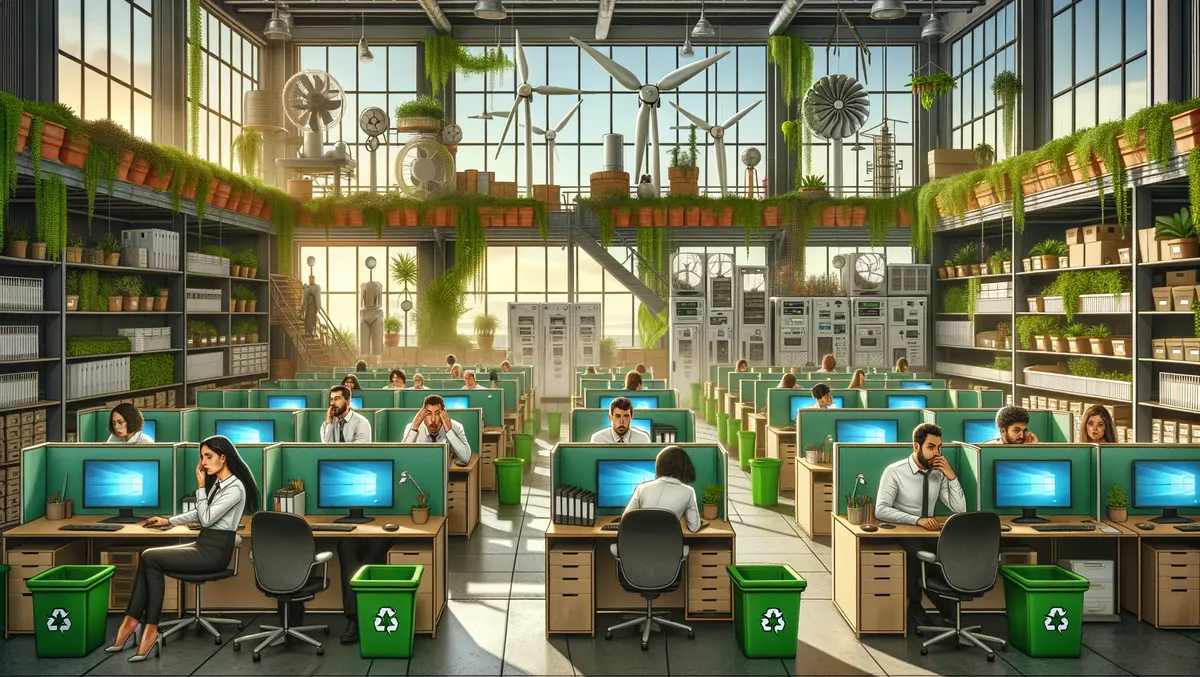
Lack of innovative tools hindering IT sustainability goals
OpenText's recent report has revealed that a dearth of innovative tools and expertise is preventing organisations from reaching their sustainability goals. Despite majority (97%) of companies indicating an intent to adopt or are already in the process of adopting sustainability initiatives, technological obstacles remain a substantial barrier in the domain according to the study.
The new report from OpenText exposes the key challenges in the industry, with only 51% of companies reporting utilisation of software to track their carbon footprint and a significant 46% of respondents acknowledging a lack of in-house expertise. It further suggests that integrating advanced tools such as AI could lead to a leap forward in IT sustainability, providing abilities such as real-time energy usage optimisation, proactive predictive analytics, and AI-driven supply chain optimisation to curtail waste and reduce environmental impact.
Despite these hurdles, there are undeniable benefits associated with IT sustainability, including cost savings, resource efficiency, risk mitigation, regulatory compliance, innovation in product design, enhanced process efficiency, technology adoption, and even potentially new revenue streams.
The new "State of IT Sustainability Report" for 2023, compiled by Dimensional Research emphasises that IT departments have a major role in achieving the sustainability objectives of an organisation. However, lack of innovative tools and expertise remain the primary hurdles in reaching those goals. The research reveals that while a formidable 97% of companies have adopted or intend to adopt sustainability initiatives, this adoption is in its nascent stages with merely 42% of companies starting to move towards environmental responsibility.
Muhi Majzoub, Chief Product Officer, OpenText, says, "The sustainability movement is in the early days, with IT taking the lead in most cases. However, this report's findings also show that companies are serious about making it a high operational priority"
Majzoub continues, "Sustainability is proving to be more than a popular social cause. There are solid business reasons pushing it: efficiency, cost savings, regulatory compliance. Because it is a 'win-win' scenario for all, sustainability is now a part of the decision-making process at most companies."
Regardless of the substantial benefits it offers, IT sustainability is not without its challenges. The most significant among these is the need for the right tools for implementing sustainability initiatives, which only 51 percent of respondents reported using. Europe is leading North America in the adoption of such tracking software. Additional findings of the report showed that 46 percent of participants cited lack of expertise as the second biggest challenge, underlining the urgent need for education and skill development in sustainable IT practices.
For the future, it is envisaged that the integration of advanced tools like artificial intelligence is set to transform IT sustainability, ushering in a new era of efficiency and environmental responsibility. AI-powered tools will enable real-time optimisation of energy usage, and predictive analytics will facilitate proactive maintenance of IT infrastructure, conserving resources. Furthermore, AI-driven supply chain optimisation will streamline operations, reducing waste and environmental impact in the process. AI technology will undoubtedly play a critical role in propelling IT sustainability initiatives towards a more environmentally conscious digital ecosystem in the future.


